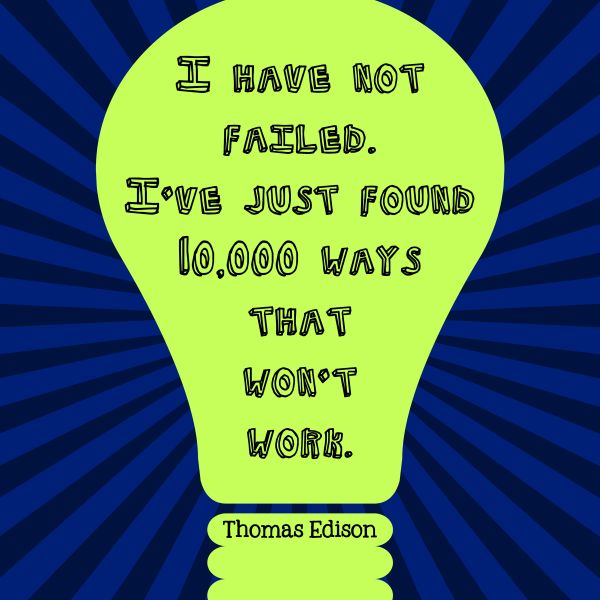Inspired by: Thomas A. Edison
Jul 21, 2016 by FIRST Staff
When it comes to innovation, the sheer volume and depth of Thomas Edison’s 1,093 patents has not been duplicated.
Helping to define the standard of living we enjoy today, Edison’s (1847-1931) inventions include the phonograph, the motion picture camera, the long-lasting, practical electric light bulb, and the first system for electricity distribution. In addition, Edison was one of the first inventors to apply the principles of mass production and large-scale teamwork to the process of invention, and because of that, he is often credited with the creation of the first industrial research laboratory.
For these, and other, practical contributions to the modern world, Life magazine proclaimed Edison to be the “Man of the Millennium” in 1997.
It is said that Edison operated on four simple principles.
- Never get discouraged if you fail. Learn from it. Keep trying.
- Learn with both your head and hands.
- Not everything of value in life comes from books – experience the world.
- Never stop learning.
A century later, we at FIRST think these principles are more important than ever as we strive to develop the next generation of future problem solvers.
To us, like Edison, failure is never a dirty word. In fact, according to FIRST Founder Dean Kamen, “People are under enormous pressure to not fail. Parents don’t want to see the pain of failure. The teachers punish you for failing. Your boss punishes you for failing. So people learn throughout their life, gradually, to find all sorts of ways to not fail – which frankly is easy to do. But the unintended consequence of redefining success as lack of failure is that we quickly become so risk-averse that everything we do in life is only marginally better than what we did yesterday. Life is so short. We shouldn’t waste any of it trying to do anything marginal.”
And we, too, think students learn best when offered lessons – both inside and outside of the classroom – that go beyond the text book. That’s why we encourage educators to seek exciting hands-on STEM activities. We’ve seen that enabling students to learn classroom competencies through project-based challenges really works and helps to create life-long learners.
Look for more “Inspired by” on the Inspire Blog, as we highlight the men and women who have influenced us on our journey to teach, nurture and inspire the next generation of creative problem solvers.
Graphic: Krissy Venosdale
Sources: thomasedison.org, time.com
If you have an inspiring story or piece of wisdom that you’ve picked up through your experiences in the FIRST community, please reach out to us at inspire@firstinspires.org and inquire about becoming a guest contributor for Inspire.

